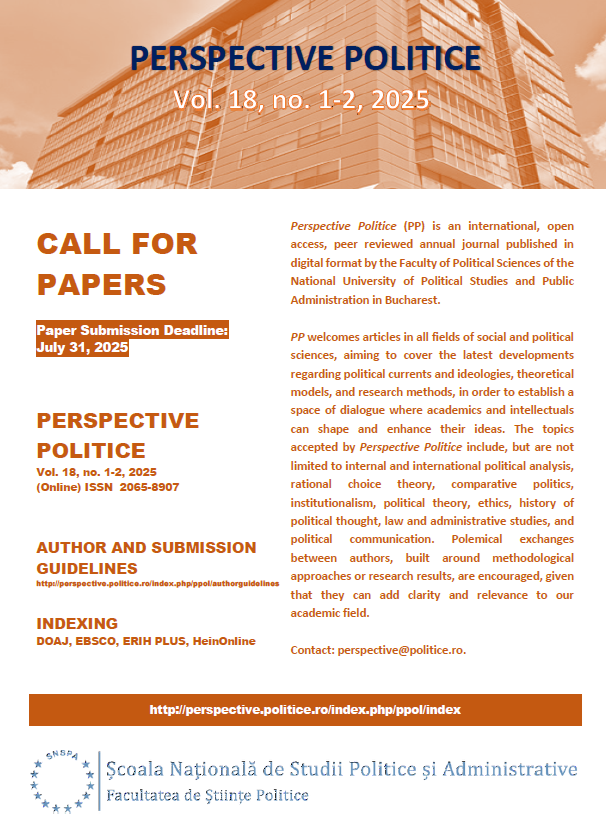The Influence of the Ukrainian Conflict on Romanian, Polish and Bulgarian Security and Defence Policies
Abstract
The Ukrainian conflict highlights the recurrent nature of conflicts in human history and their profound impact on societies. Although the post-World War II period was relatively stable, the invasion of Ukraine by Russia marked the end of this apparent stability. The theoretical framework of the study is rooted in realism in international relations, which focuses on power and national security. This perspective is used to understand the actions of the states involved in the Ukrainian conflict. The study explores the causes of the conflict and the responses from NATO and the European Union, emphasizing how the war has prompted European states to reassess defence priorities and strengthen alliances. A significant part of the study details the specific changes in the security and defence policies of Romania, Poland, and Bulgaria. Romania and Poland have notably increased their defence budgets and requested additional NATO troops. Poland has modernized its defence infrastructure and boosted domestic arms production. In contrast, Bulgaria has taken a more passive approach, with fewer initiatives to revitalize its defence industry. The study’s conclusions partially confirm the initial hypotheses, highlighting the increased defence budget allocations in Romania and Poland, but not in Bulgaria. There also are challenges regarding recruiting military personnel and adapting national security strategies. All in all, the responses of the states to the conflict are closely linked to their threat perceptions and specific national interests.

Downloads
Published
Issue
Section
License
Copyright (c) 2024 Cristian-Stefan CATRINA

This work is licensed under a Creative Commons Attribution-NonCommercial-ShareAlike 4.0 International License.



